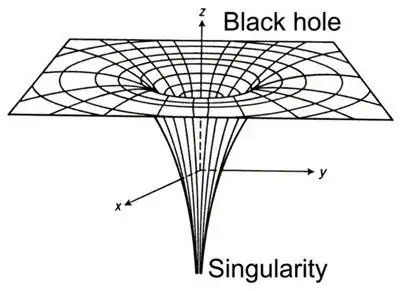For science!
At present we have two main theories of physics:
- General relativity, which is about very heavy things and gravity.
- Quantum mechanics, which is about very small things.
We have not been able to fit these two together. One of the reasons for this is that we have not been able do experiments that test both at once. Objects that are small enough to have quantum effects are not noticeably affected by gravity. At least not strongly enough that we can distinguish between different theories of gravity.
Our other theories (eg. electromagnetism) can be fit with one or the other, but not both at once.
Black holes changes things. Here gravity is very strong and even electrons will feel the pull.
If we would be able to bring along both a neutrino source and a neutrino detector, we would learn much about these mysterious particles. However, at current or near-future tech levels neutrino detectors are very massive and not something you can move off-Earth.
Even without that I am sure there are numerous experiments we could do with a humble electron ray that will be very useful.
The main experiment I see done is sending a laser or a ray of electrons in very close to the event horizon, and putting a detector where it comes out.
Useful results would be angle of deflection and time taken for the journey. Maybe also how spread out the beam has become.
If the hole is rotating, sending beams both with and against the rotation will be interesting.
Why humans?
This is about science, which means we won't know in advance what experiments we want to perform. Results of the one experiment will suggest new physics theories. These will suggest new experiments to perform.
A machine cannot do this. (Unless you have powerful AI) If there are no humans on the spot, the results will have to be sent to Earth and new commands sent back. This will take too much time and the black hole will move away before we are done.
I suggest a crew consisting of a mixture of astronauts and physicists. Both will need to have a good understanding of the other side, but in the end they are different in their goals. The astronauts will want to keep everybody alive and return home in one piece. The physicists will want to perform more experiments. More! MORE!!
Other answers have suggested sending several unmanned probes instead of a manned one. I suggest a manned ship carrying many unmanned probes. The ship stays prudently far away from the radiation, the probes go closer, not close enough for tidal effects to destroy them, but definitely into hard radiation areas.
Parting gift.
The time comes when the hole moves away and we have to go home to Earth. Leave something behind for aliens to discover, maybe something like the Pioneer Plaques and Voyager Golden Discs.
The hole will be a scientist magnet from every civilization it passes nearby and a good meeting spot.
Maybe we will find an alien artifact already there...


